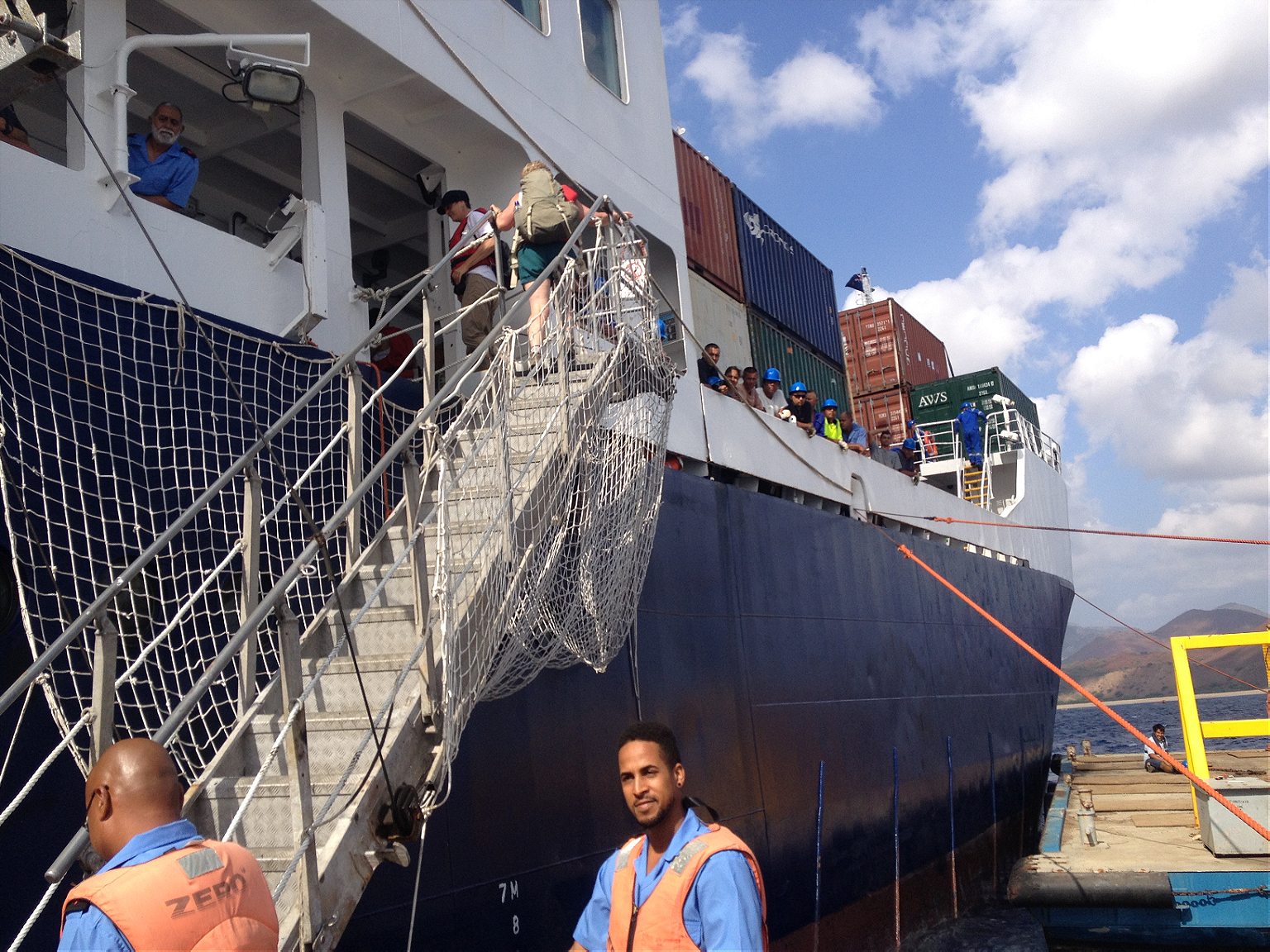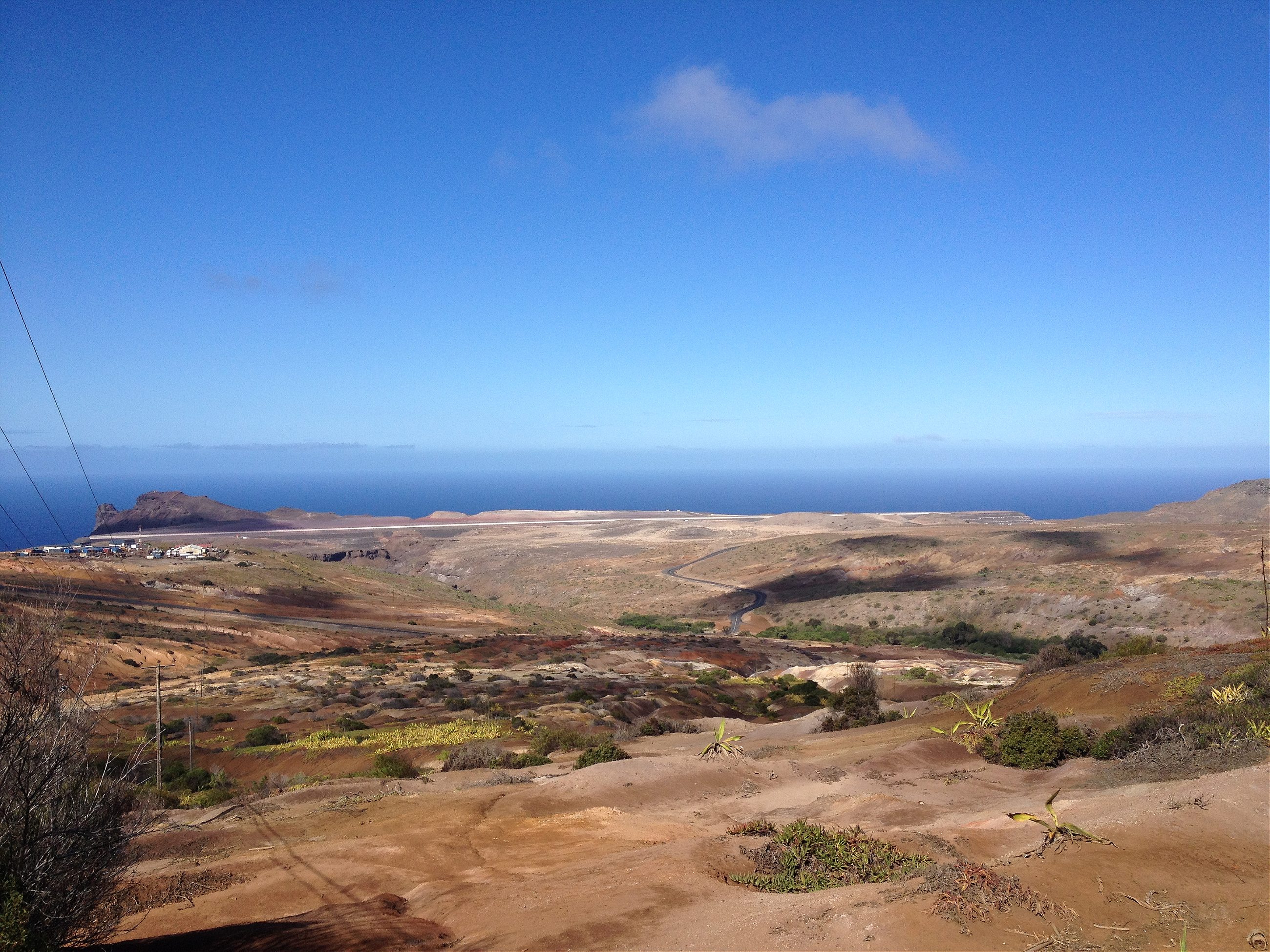Aboard what was supposed to be the last voyage of the legendary Royal Mail boat.
St Helena Island is a mound of volcanic rock in the middle of the Atlantic Ocean. It’s about 1,200 miles west of a river on the border of Namibia and Angola and about 1,800 miles east of Rio de Janeiro. Charles Darwin once wrote that the island “rises abruptly like a huge black castle from the ocean.”
This is an exciting time for the British protectorate. It’s one of the most remote places on earth, so remote even Napoleon Bonaparte–who was exiled here—could not escape from it. For most, it is accessible only by a Royal Mail Ship called the RMS St Helena. The ship arrives from Cape Town once every three weeks, and from Essex in England once every six weeks. But that was about to change. I was on what was supposed to be the last voyage of the ship. Later this year, planes were supposed to start arriving on the island for the first time.
There were 100 passengers on the last voyage RMS St. Helena. We shared the modest vessel with a crew of 67, and 100 shipping containers. Almost immediately, I became a member of the family. People knew my name before we even crossed paths on the narrow corridors below decks.
This is how I met John Hamilton: “So, that will be your first time crossing the line of the equator?” I told him it was. This exchange somehow led to me facing mock trial at Poseidon’s Court seven days later. I was eventually convicted of pretending to be the captain’s wife and going to dinner dressed in only a string of pearls. I was sentenced to be pelted with honey, dry fish, beer, eggs and other sticky and smelly substances from the ship’s pantry.
It was tradition, as were the many diners and cocktail parties on the ship. An 1861 article from The Manchester Guardian (back when the Royal Mail Boat was the H.M.S Archer) tells of “the brilliant parties which have been given to and by the dance-loving community, that given on board H.M.S Archer on Friday evening last, by Captain Craufurd and the wardroom Officers will live long in the memory of those who had the honor of being present.”

The ship’s current captain, Captain Rodney Young, upholds the tradition. Today, you hear the familiar melodies reverberating around the vessel, as passengers emerge from their cabins in their best outfits, trading polo shirts for ties and high heels. The entertainment is usually American country music, which is apparently huge in St Helena. Passengers know the songs by heart. I almost preferred the thundering of the massive engine to several hours of country music.
Because the ship is the only way to get cargo to the island, supplies on St Helena are scarce. The residents of the island—the island has a population of about 4000 people who call themselves Saints—are masters of reusing and recycling. One Saint told me this on the ship, as he was making cricket balls out of docking knots.
The British government has been planning an airport on St Helena since the 1950s. But schemes failed until earlier this year, when construction finished on a $400 million airport. It was scheduled to open in May, and everything was going well until engineers discovered that because of high winds, it was impossible for large commercial airlines land or take off from the 6,400-foot runway. The runway had to be shut down before it was even opened, a subject that caused a lot of laughter when we found out on board the ship. Some saints are demanding compensation. In response, the British government announced plans to keep RMS St Helena running for another year.

The new airport’s runway can at least handle small Medevac planes. In June sick newborn baby from the island was flown to a hospital in Cape Town, which is life-changing for many Saints. A month earlier, a baby who was being evacuated aboard the RMS St Helena died at sea during the five-day journey.
The passengers on the RMS St Helena were a diverse group of people. Along with Saints going home, there were British government officials and Napoleon fanatics, who assumed that because I am French, I could be counted among their number. I can not. One of the fanatics was an antiques dealer, who had built an interesting collection of Napoleon’s artifacts.
Another simply came to be known as: ‘the Russian poet.’ The poet spent the journey reading biographies of Napoleon, and sharing the juiciest quotes. One gem was written when Napoleon was dissatisfied by a doctor who was sent to take care of him during his time on St Helena: “Very well, let him spend all his time with his whores, let him fuck them back and front, in the mouth, in the ears, but get rid of that man for me. He is stupid, ignorant, pretentious and utterly devoid of any sense of humor.”
I, on the other hand, spent my time on the deck, watching leaping dolphins, flying fish and exotic birds, including a very rare species that one round-the-world sailor told me he had seen in only two places.
As we arrived, the view was impressive, a small Georgian town set at the foot of two mountains. The island employs rock guards who survey the cliffs overlooking the city to make sure tumbling rocks don’t damage houses or injure Saints. As we got closer, the officer announced, over a crackly speaker that: “St Helena is on view in front of the ship.”